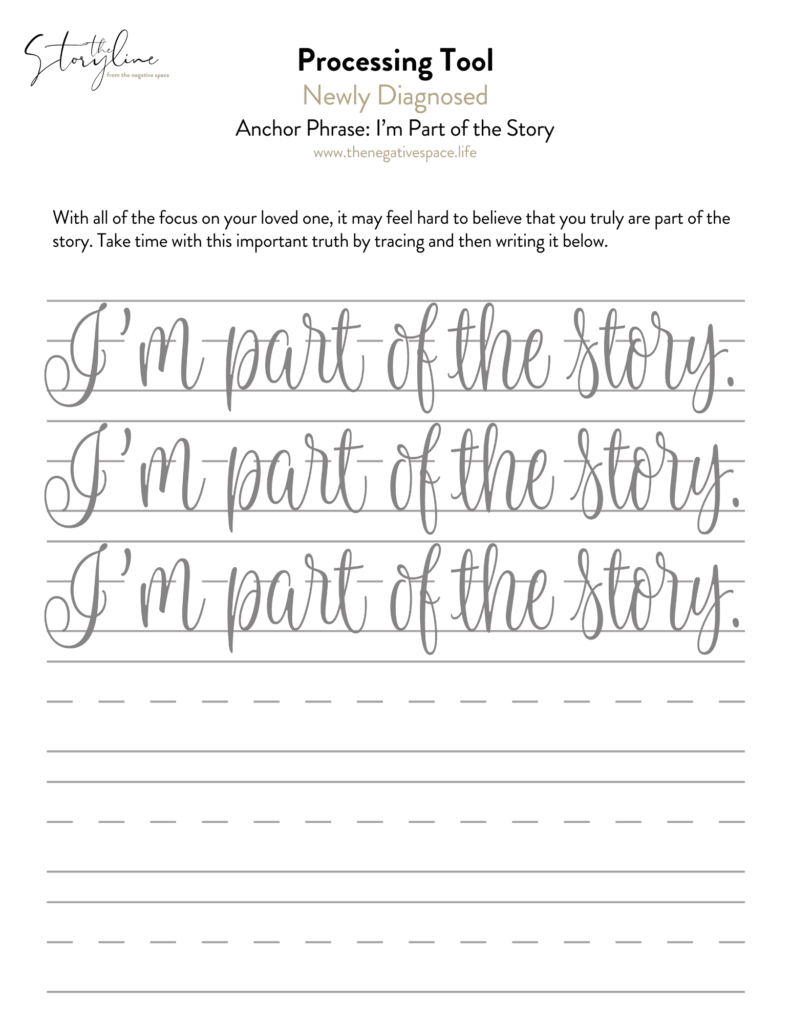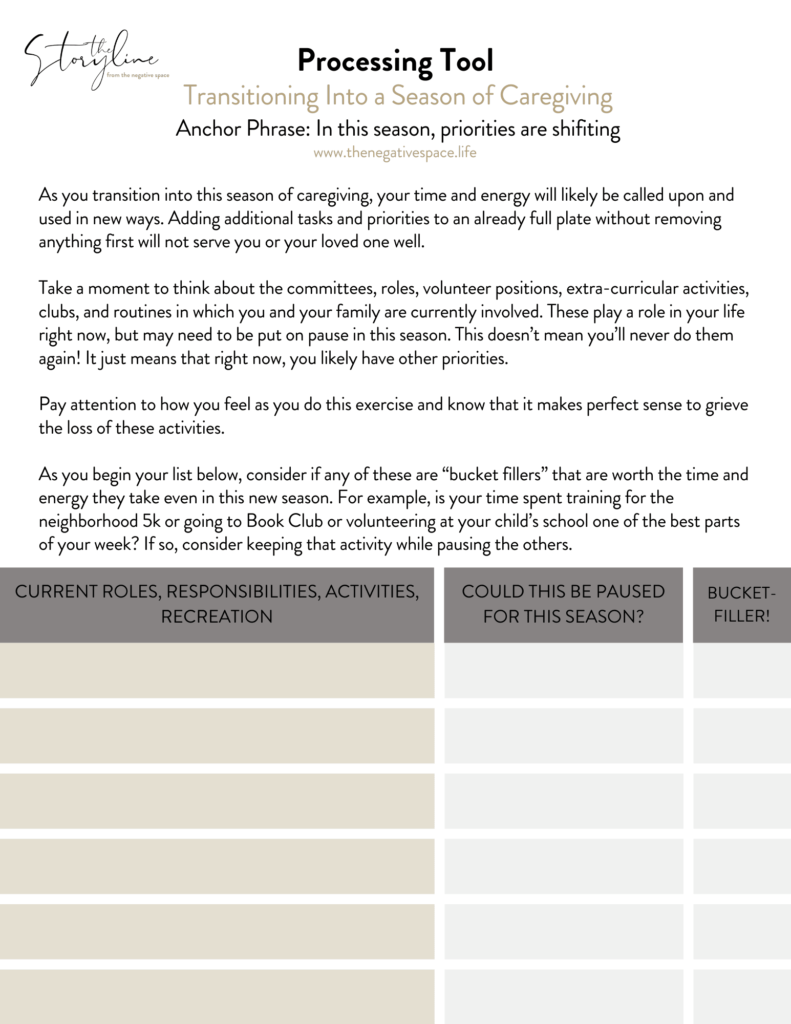
Processing Tools

newly diagnosed
With all of the focus on your loved one, it may feel hard to believe that you truly are part of the story. Take time with this important truth by tracing and then writing it below.

transitioning into a season of caregiving
As you transition into this season of caregiving, your time and energy will likely be called upon and used in new ways. Adding additional tasks and priorities to an already full plate without removing anything first will not serve you or your loved one well.
Take a moment to think about the committees, roles, volunteer positions, extra-curricular activities, clubs, and routines in which you and your family are currently involved. These play a role in your life right now, but may need to be put on pause in this season. This doesn’t mean you’ll never do them again! It just means that right now, you likely have other priorities. Pay attention to how you feel as you do this exercise and know that it makes perfect sense to grieve the loss of these activities.
As you begin your list below, consider if any of these are “bucket fillers” that are worth the time and energy they take even in this new season. For example, is your time spent training for the neighborhood 5k or going to Book Club or volunteering at your child’s school one of the best parts of your week? If so, consider keeping that activity while pausing the others.

The first two Processing Tools are included in the first two chapters of The Storyline, “Newly Diagnosed” and “Transitioning Into A Season of Caregiving” which are free and available to all.
Other chapters and tools can be accessed by becoming a member of The Storyline.
The Negative Space is a 501c(3) nonprofit organization dedicated to providing programs and resources that are financially accessible to all caregivers.
If the cost of The Storyline subscription is prohibitive, there are opportunities for support.

